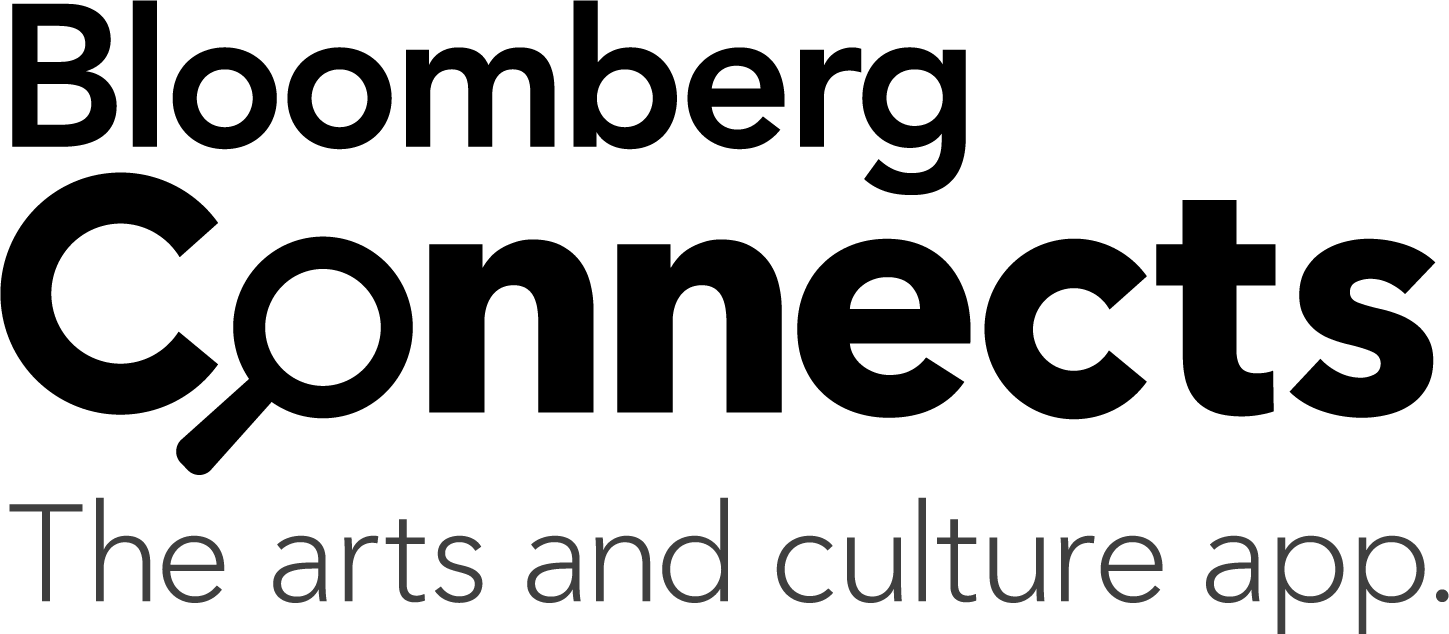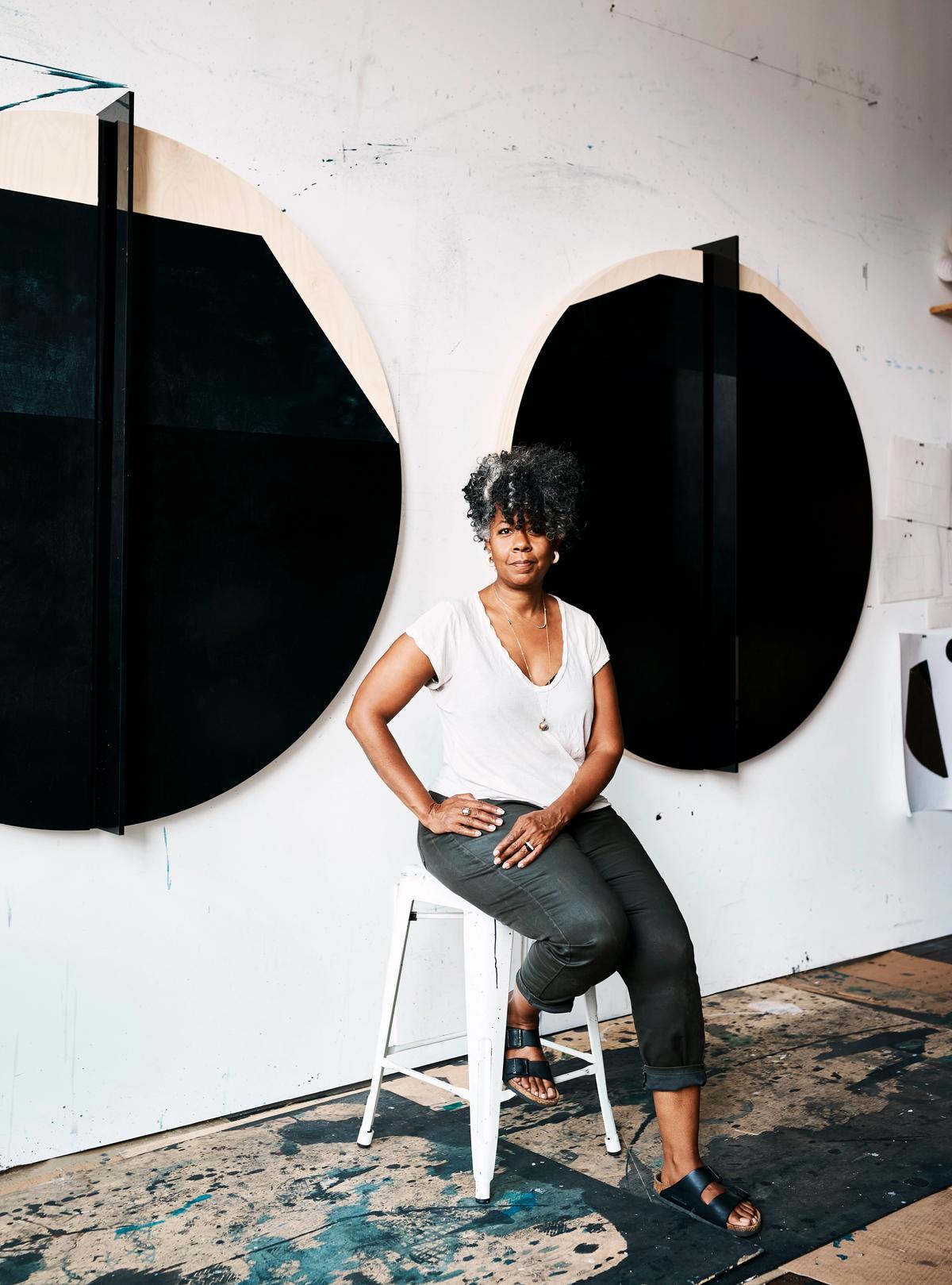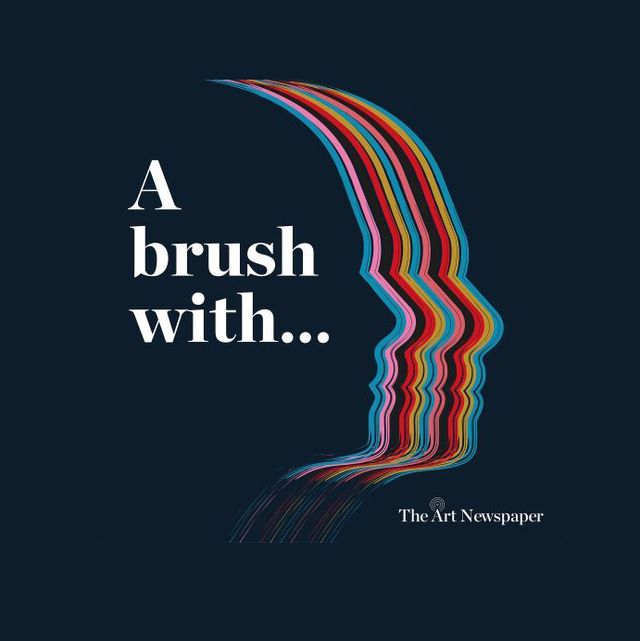Torkwase Dyson talks to Ben Luke about her influences—from writers to musicians, film-makers and, of course, other artists—and the cultural experiences that have shaped her life and work.
Dyson, who was born in Chicago in 1973, uses abstraction as a means of exploring what she describes as “the ways Black and brown bodies perceive and negotiate space as information”. Painting is the fundament of her practice but she uses a variety of media, from drawing through sculpture and architecture to community practices and collaborative performance.
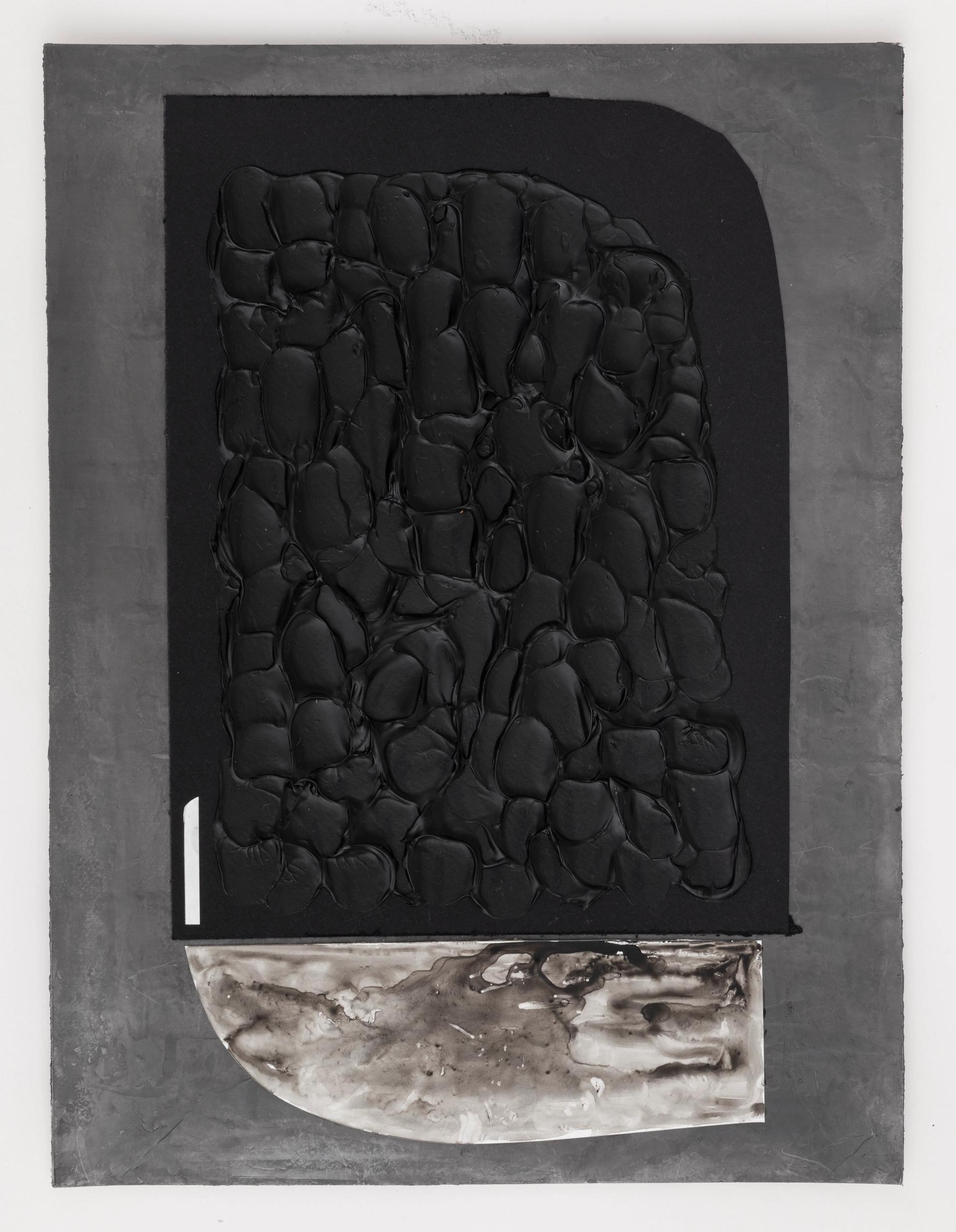
Torkwase Dyson, From the Water There is Power (Black Liquidity) 4 (2023)
© Torkwase Dyson, courtesy of GRAY Chicago/New York
The result is a body of work that is diagrammatic and scientific yet expressive and sensorial. It deconstructs natural and built environments in relation to the histories and legacies of enslavement, colonialism, capitalism and extractivist practices, while addressing the climate emergency and climate justice.
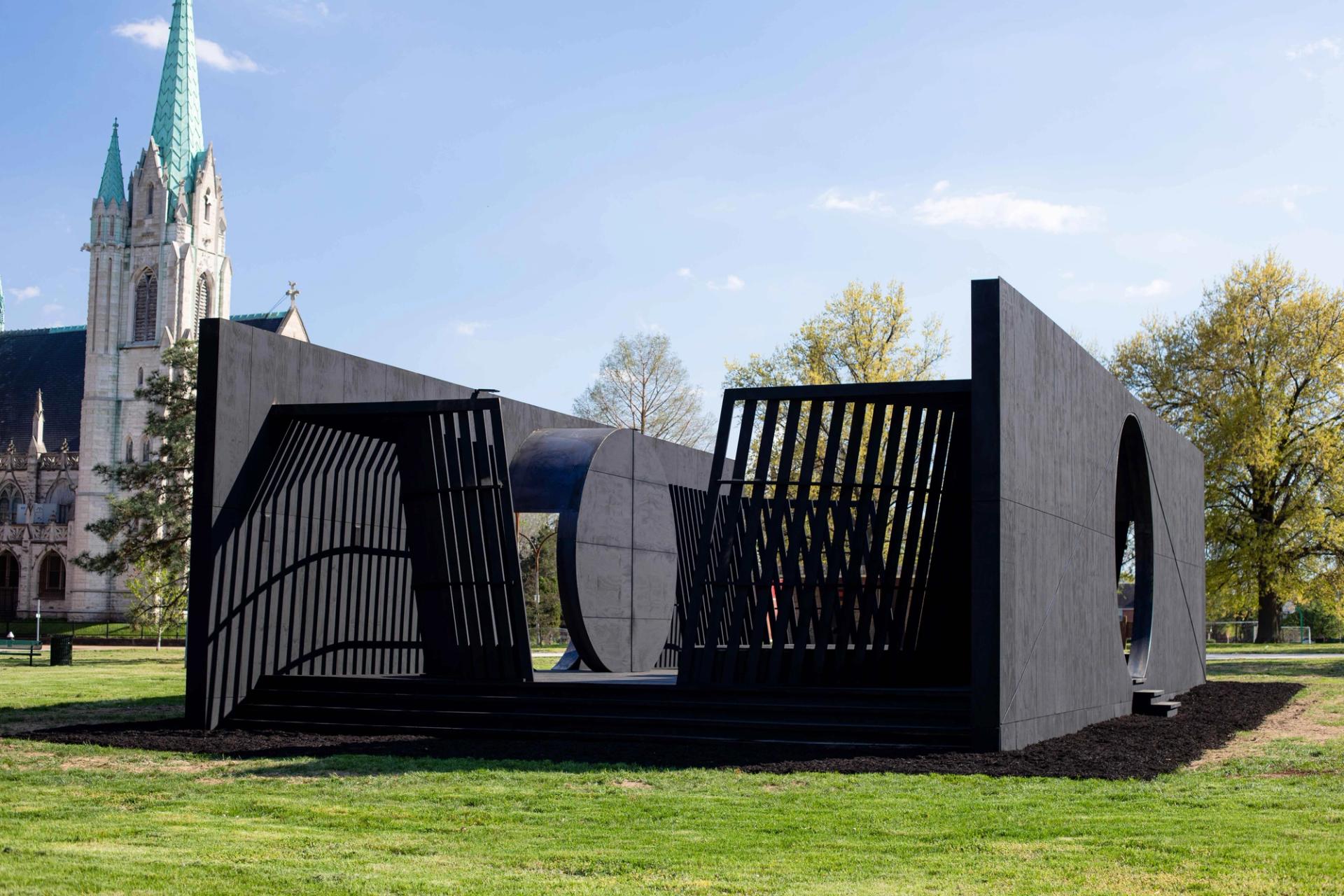
Torkwase Dyson, Bird and Lava (Scott Joplin) (2023)
Photo credit: Chris Bauer. Commissioned by Counterpublic 2023
She reflects on her concept of Black Compositional Thought and the “hypershapes” that appear in her work, discusses the profound role of the senses and embodiment in her practice, and acknowledges the rigour and discipline that underpin it. She describes the seismic effect on her of the paintings of Mary Lovelace O’Neal, reflects on her admiration of the work of Tony Smith and his daughter, fellow artist Kiki Smith, explains the effect of the writer Saidiya Hartman’s reflections on her work, and discusses a recent project responding to the music of Scott Joplin. And she answers our usual questions, including the ultimate: what is art for?
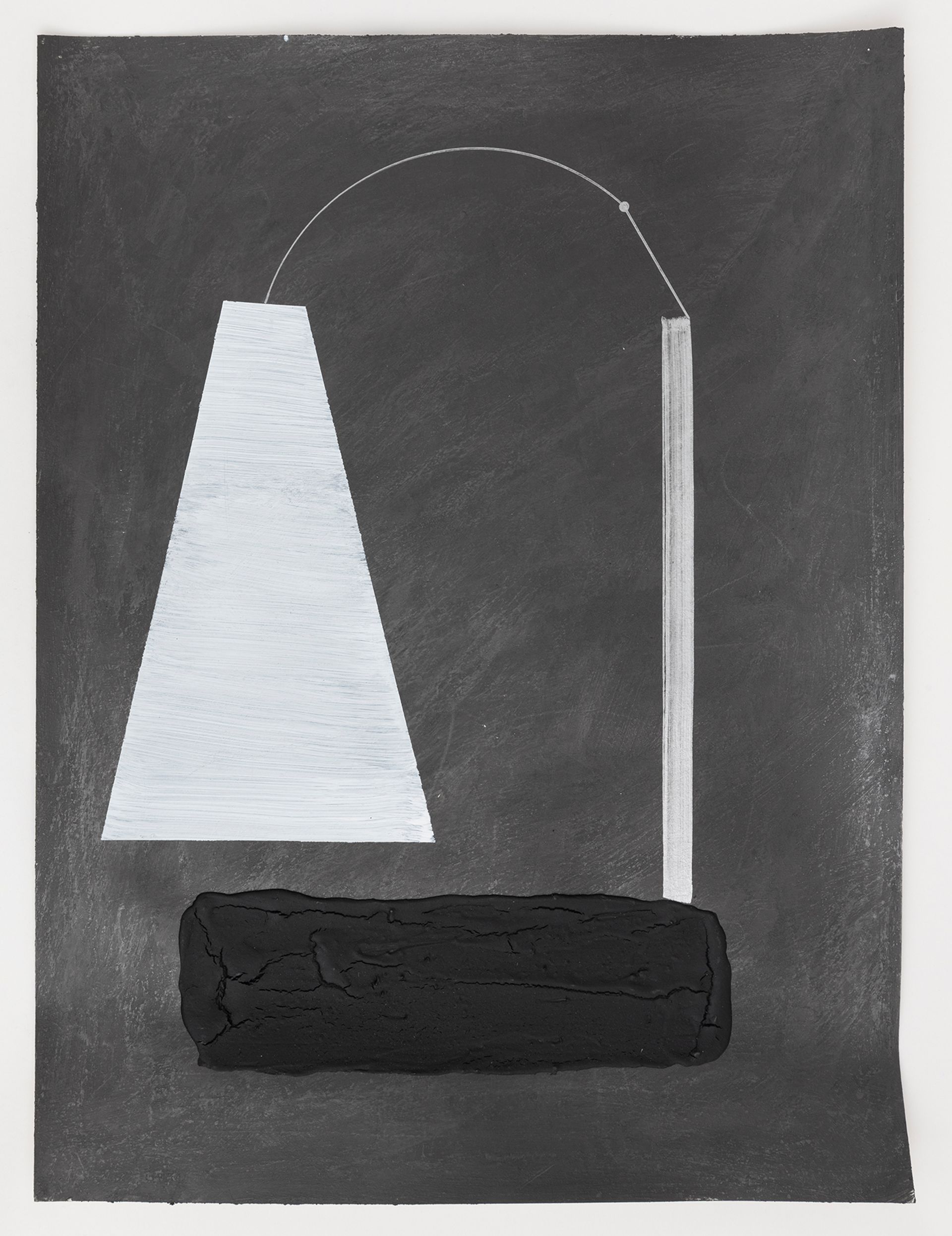
Torkwase Dyson, Hypershape, Living in Motion (2022)
© Torkwase Dyson, courtesy of GRAY Chicago/New York
• 35th Bienal de São Paulo: Choreographies of the Impossible, until 10 December
• 12th Seoul Mediacity Biennale: This Too, Is A Map, until 19 November 2023.
This podcast is sponsored by Bloomberg Connects, the arts and culture app.
The free app offers access to a vast range of international cultural organisations through a single download, with new guides being added regularly. They include several museums where Torkwase Dyson has shown her work, such as the Studio Museum and the Drawing Center in New York and the Serpentine Galleries in London. Download the app and you’ll discover that the guide to the Studio Museum has a feature called New Additions, a series of audio interviews with artists whose work has been acquired by the museum. The latest examples feature the painters Tunji Adeniyi-Jones and Jadé Fadojutimi.


